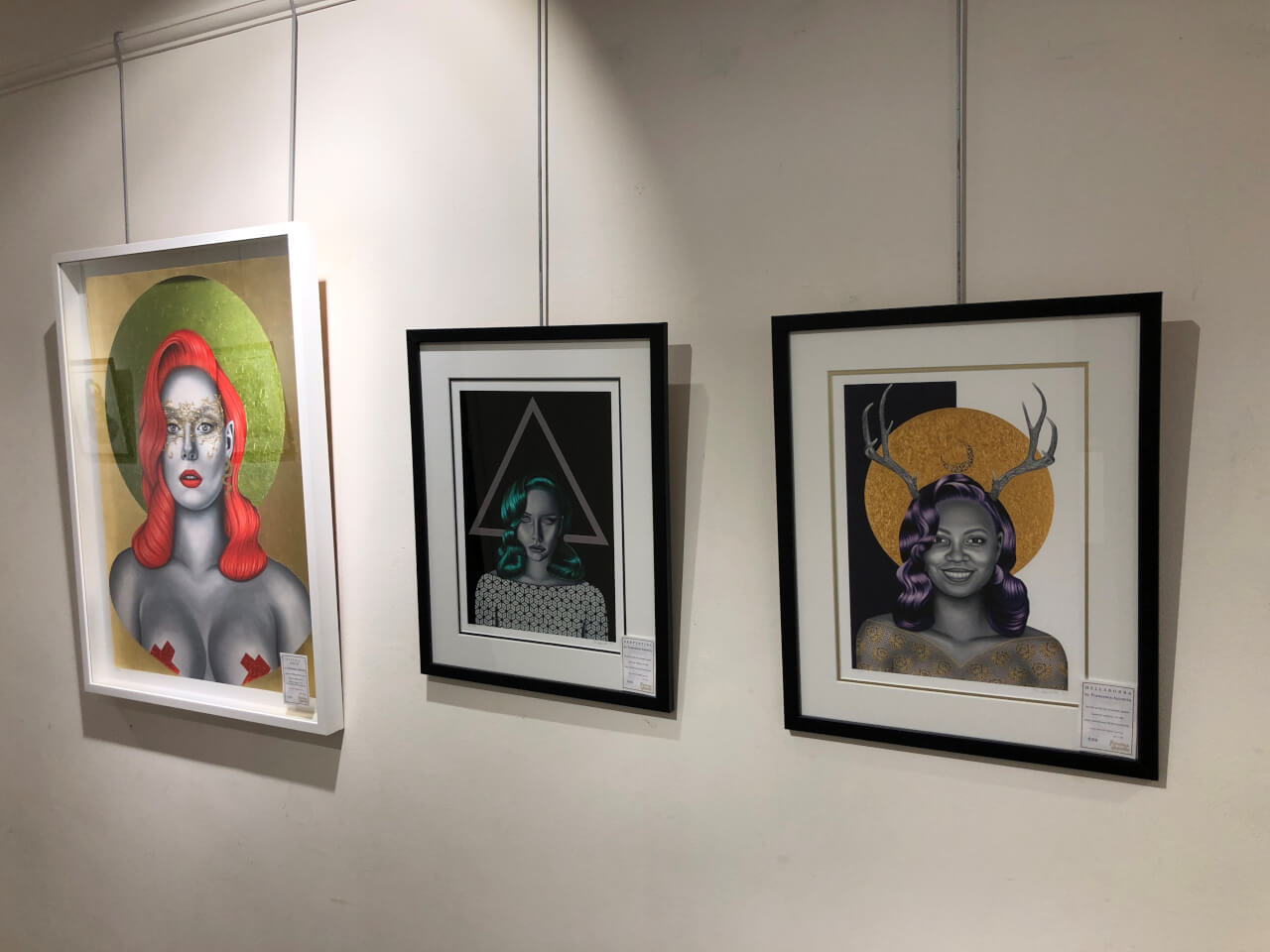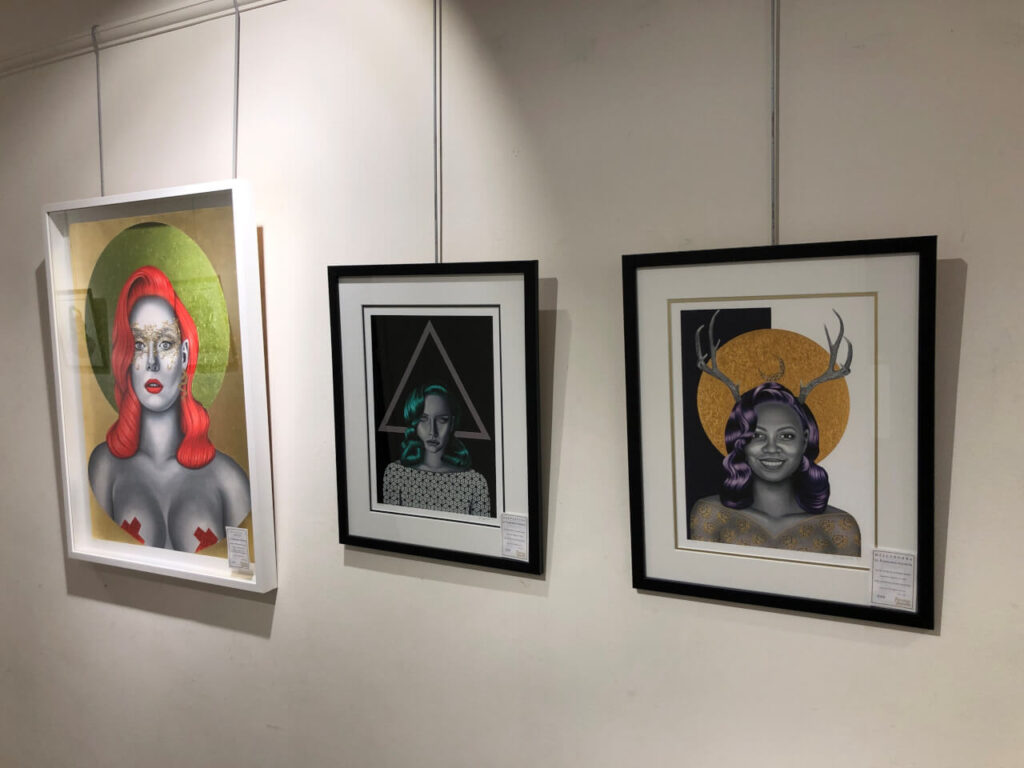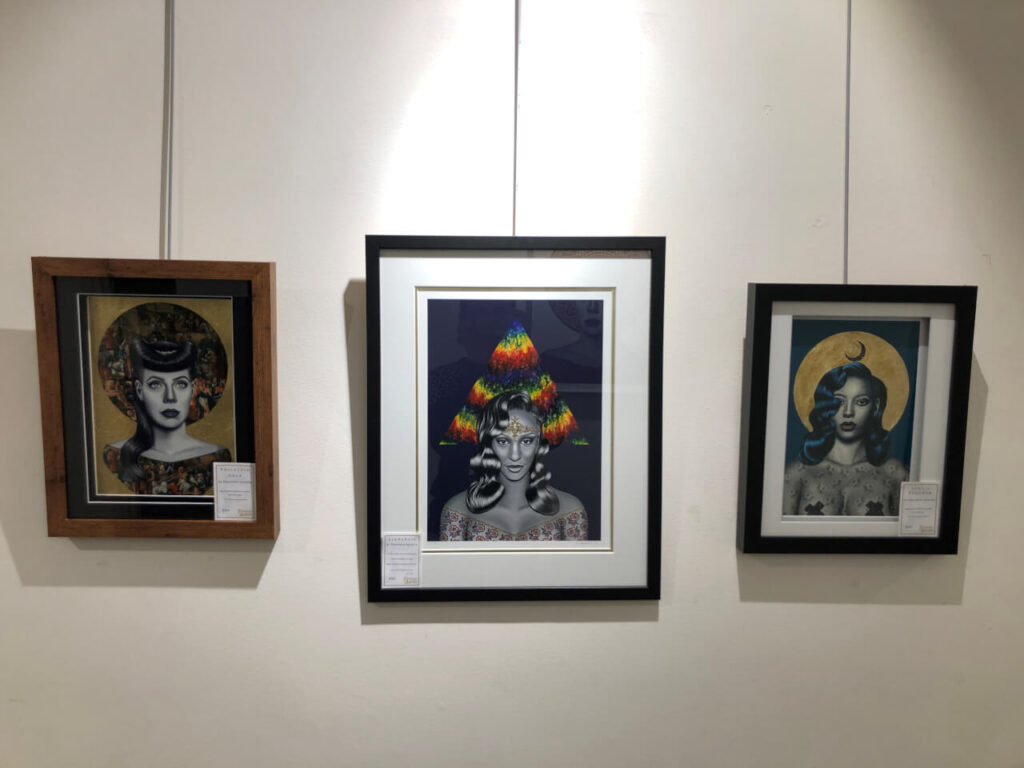
News
Francesca Apicella art exhibit at the Tavistock Centre
This December, artist Francesca Apicella is exhibiting her signature portrait paintings at the Tavistock Centre. The vintage-inspired artworks have a surreal, modern twist, and explore the artist’s personal struggles with chronic illness through strong female icons, each representing a different part of her health journey.

Francesca Apicella is a self-taught artist living in West Sussex. She took to painting at a challenging time and developed the skill naturally. “I was quite depressed, very unwell, I hadn’t been out of bed for five years. The first one I ever painted was Philautia, the red piece about self-love. My goal was to find some positivity in this body that no longer worked properly, that I felt like trapped in. By the end of it I realized I have this amazing skill that I never knew I had! And it just took off from there.”
The women she portrays are made up of lots of different references. Philautia is inspired by Victorian photography, mixed with the 1940s influences. Some are real people: Elshadaie is a London doctor working in A&E, and Lucretia is a lady who also has chronic illnesses herself.
Despite health challenges, Francesca is a busy artist, consistently exhibiting her paintings, which she credits her mother for. “It’s absolutely wonderful to have such a supportive mother. A lot of times I am stuck in bed and she does most of it for me. I couldn’t have done it without her.”

Francesca’s exhibition opened just in time for the International Day for People with Disabilities. She feels that the narratives of artists with disabilities are starting to become more widely represented in the mainstream. “There are so many artists with chronic health problems, and that fuels their art. That’s also my drive, absolutely. When I’m really unwell, it’s when I’m most creative. I have the weirdest dreams and come up with ideas.”
The Tavistock Centre’s gallery hosts temporary art exhibitions by various artists every month. The Trust also has a permanent art collection, displayed around its building, in corridors and rooms.
Art plays an important role in helping the Trust to engage with staff, patients and everyone connected with its work.
